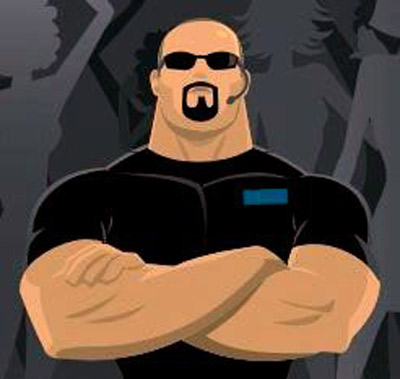Recently, the leader of an opposition party was to come to a TV interview but half an hour before his arrival, his bodyguard came and was interested to know where his “client” will come in and go out. As far as I know, the leaders of political parties are not in the position to have bodyguards by the law but even if they have, it seems to me that having guards is a sign of being detached from the real life and the people. The expressions like “Oh, suffering people; eh, emigration; eh, poverty; eh, we are on the brink of the abyss” uttered by someone who is walking with a bodyguard do not sound sincere. Similarly, these words are not uttered convincingly from the mouth of women wearing fur coats worth of 10 thousand dollars.
No, I’m not against rich people, I am not even against the fact that they are involved in the politics in the framework of the law. (It is another matter that not only the combination of business and politics should be banned but also anthropy and politics). But the matter here is about insatiability and self-affirmation thru secondary and external manifestations. These secondary for the first glance small things are speaking of the person’s value system: how he lives, what he desires, why he needs power, or in this case, the mandate of a lawmaker.
In this regard, let me ask, what is the difference between the two main favorites of the election campaign in this light: those two parties that apparently will form the absolute majority of the future parliament. Why should I worry about with what ratio they will form this majority: a 35+25 or a 24+38 percent? There might be some rearrangements inside their system or re-distribution of the power, however, the problem is related to several dozen people and not us, the 100 thousand citizens of Armenia.
And why only those two. And what about the great part of the remaining parties? Were they categorically against the bodyguard beating a man to death for “greeting the president wrongly”? Or, were protesting when the “yerkrapahs” and bodyguards of the oligarchs had thrown people under their feet simply because they did not like their appearance.
You would say that all of this is in the past and does not matter. The important thing is the “poor people” with whose sorrows they are worried sitting in their palaces and surrounded by bodyguards. But “people look miserable” particularly because they are arrogant, unpunished, uncontrolled that almost the entire political elite, regardless of whether it is called a power or an opposition, professes the same values: obstinacy, ignorance, money idolization.
Certainly, other things are said on television and other platforms. The problem is who believes these words.




















































